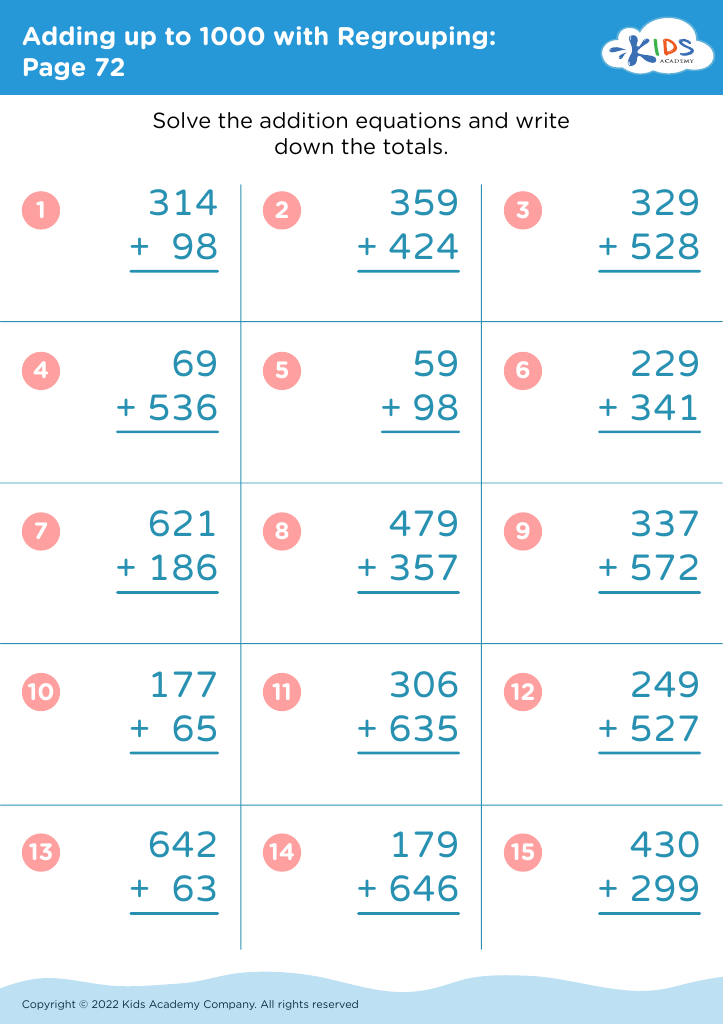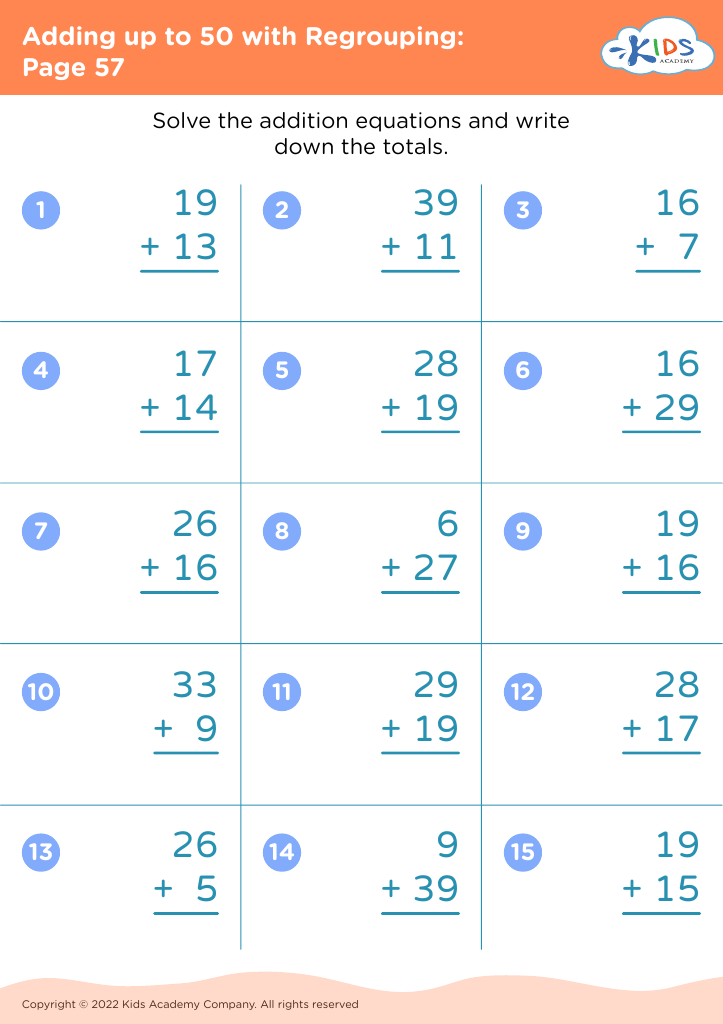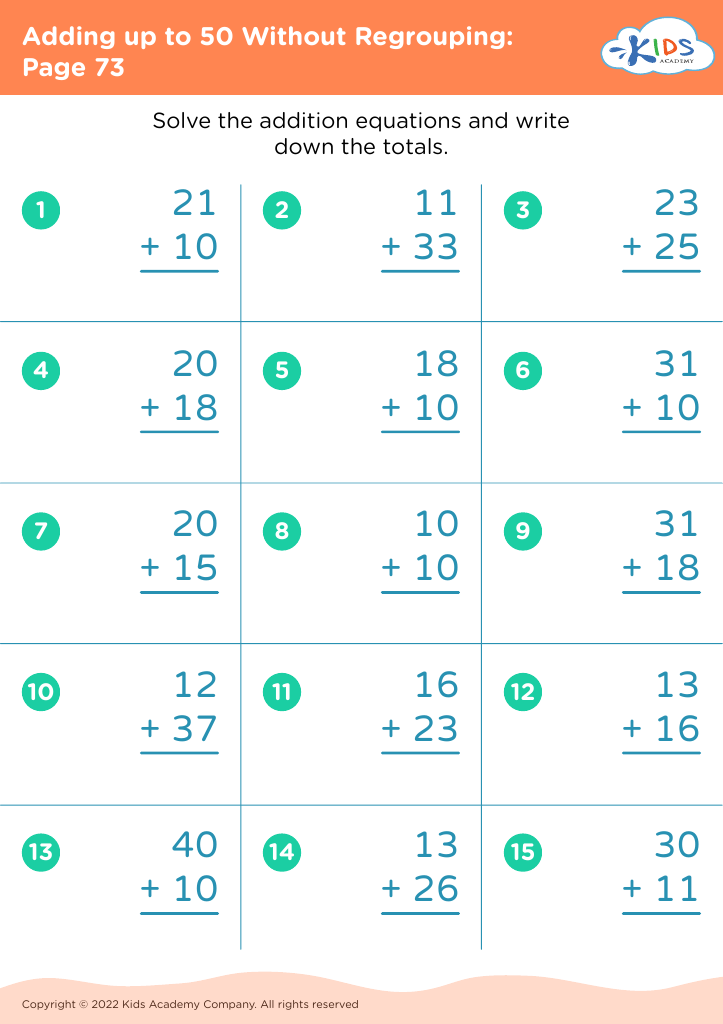Logical thinking Addition Worksheets
9 filtered results
-
From - To
Welcome to our Logical Thinking Addition Worksheets! Designed for young learners, these engaging worksheets foster essential logical reasoning skills while reinforcing addition concepts. Perfect for preschool and early grade school students, our resources promote critical thinking and problem-solving through fun, interactive exercises. Kids will enjoy challenging puzzles and scenarios that require them to apply addition skills in creative ways. Ideal for both classroom and home use, these worksheets encourage independent thinking and build a strong mathematical foundation. Explore our collection today and watch your child develop confidence in their addition abilities while honing their logical thinking!
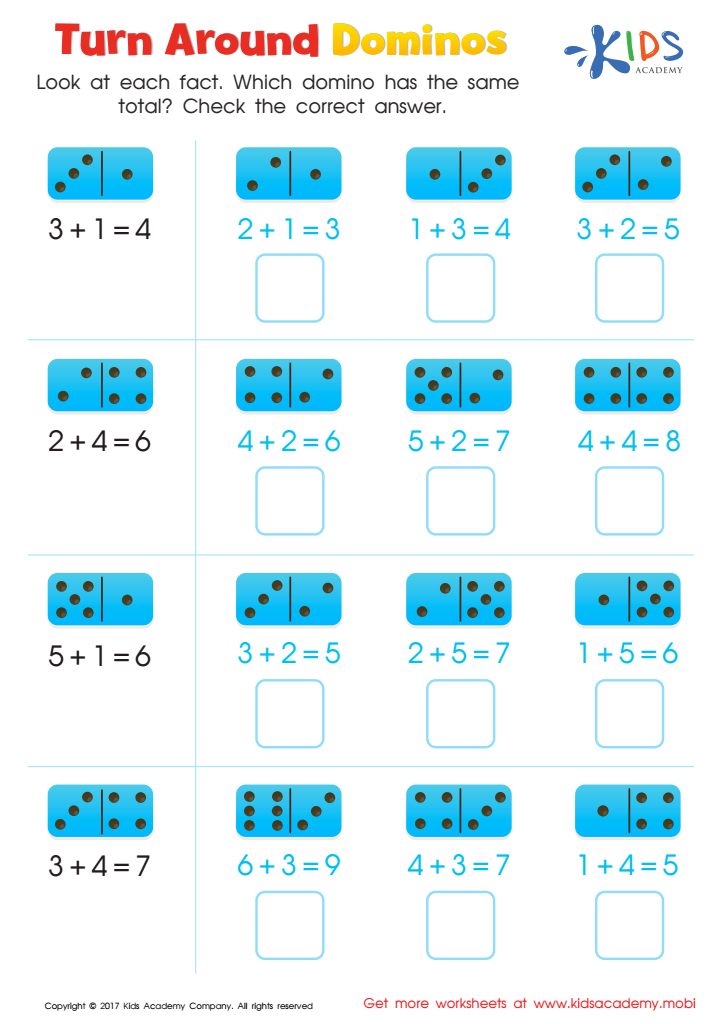

Turn Around Dominos Worksheet
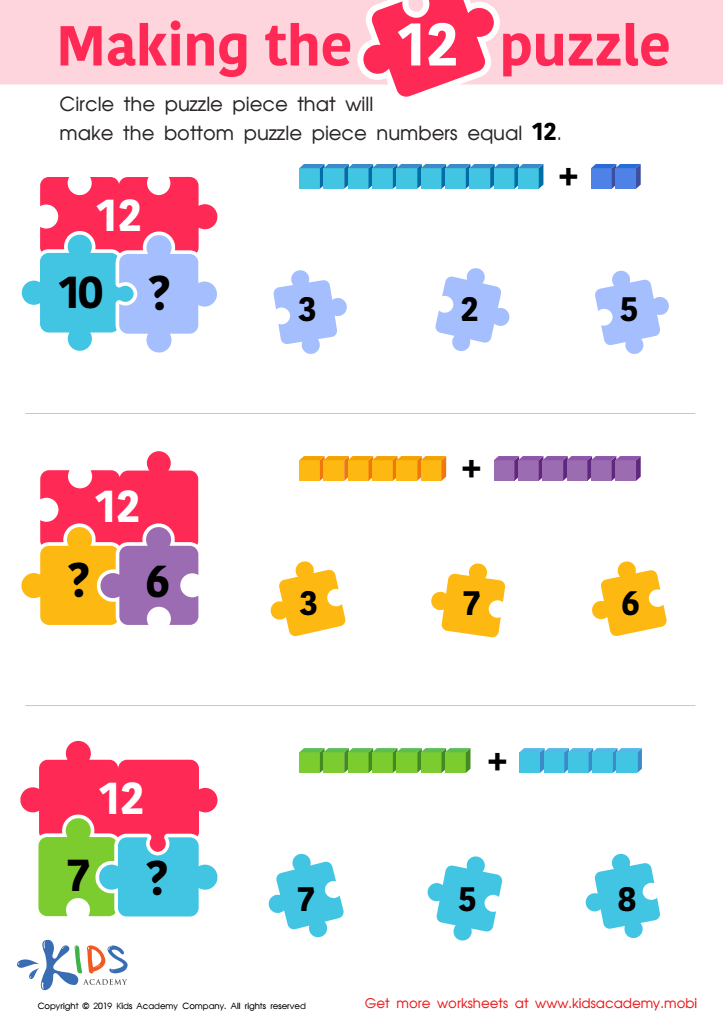

Making the 12 Puzzle Worksheet
Parents and teachers should prioritize logical thinking in addition because it is foundational for mathematical understanding and problem-solving skills. Logical thinking empowers children to approach addition systematically, which fosters resilience and adaptability in tackling complex challenges both in mathematics and real-life scenarios.
By encouraging logical thinking, children learn to recognize patterns, understand relationships between numbers, and develop flexible strategies for solving addition problems. This not only enhances their mathematical abilities but also contributes to their overall cognitive development. For instance, using logical reasoning, children can break down larger problems into smaller, manageable components, which leads to greater accuracy and confidence in their calculations.
Moreover, strong logical thinking skills in addition can have long-lasting benefits. As students progress in their education, these skills will facilitate their understanding of more advanced concepts in mathematics and other subjects, making learning more efficient and enjoyable.
Additionally, teaching logical thinking promotes critical reasoning and decision-making skills that extend beyond the classroom. In a world where analytical skills are increasingly important, nurturing this aspect of learning can play a crucial role in preparing students for future academic and career success. Ultimately, supporting logical thinking in addition lays the groundwork for lifelong learning and personal growth.

 Assign to My Students
Assign to My Students
